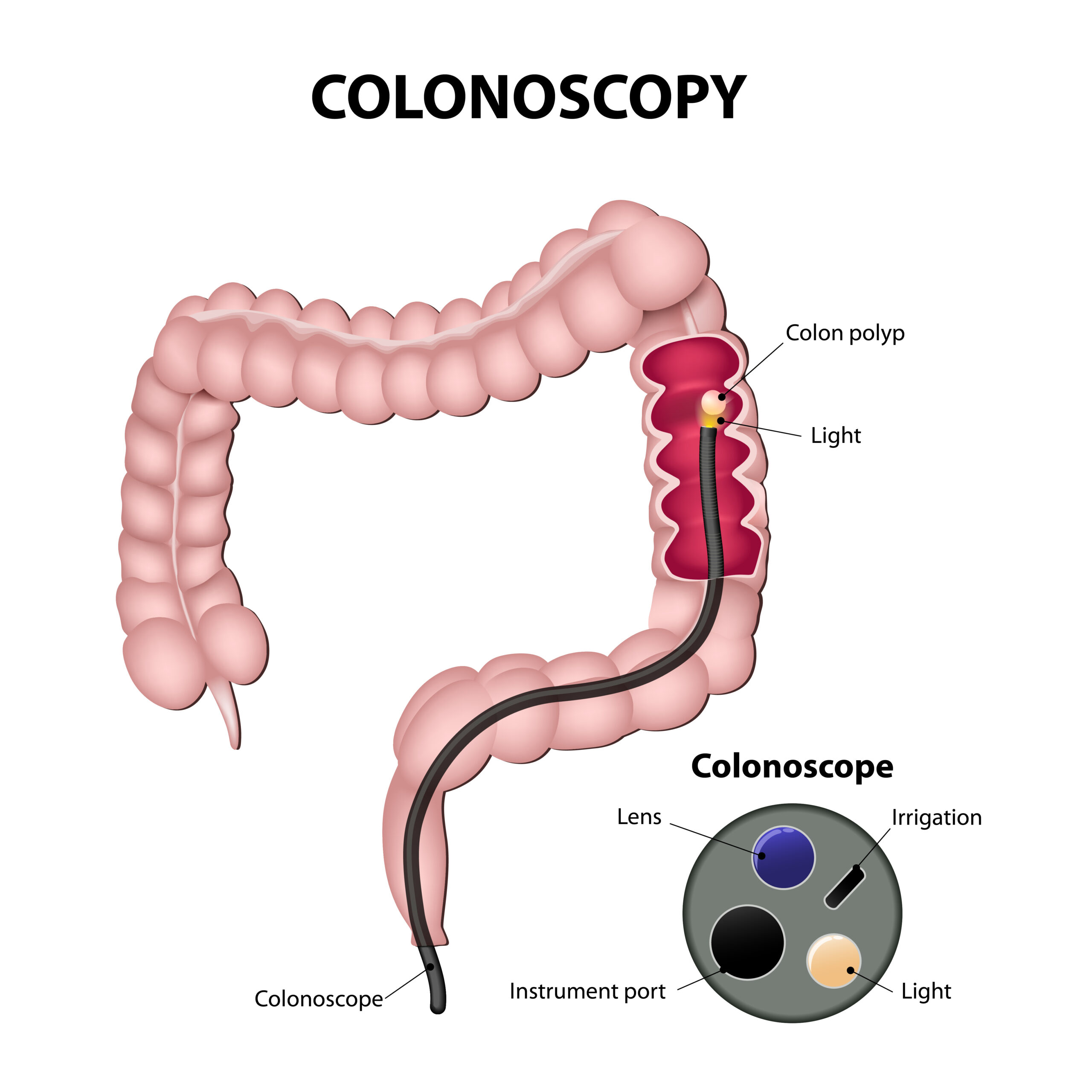A colonoscopy is a procedure that allows a physician to examine a patient’s colon. Colonoscopies are often used to evaluate GI disorders and screen for colon cancer. Here’s what you need to know if you are preparing for a colonoscopy.
When it’s used
There are a few reasons your doctor may recommend a colonoscopy. The procedure is commonly used as a screening tool for colon cancer, which starts from polyps in the colon. A colonoscopy can help your doctor examine your colon for any polyps and other warning signs of colon cancer. You may also need a colonoscopy if you have previously had polyps. In this case, your doctor will likely look for more polyps and remove any, as a preventative measure against colon cancer. Last, you may need a colonoscopy if you have any GI pain or distress that your doctor needs to identify and diagnose through examination.
Preparing for a Colonoscopy
There are a few important pre-procedure steps you need to take leading up to a colonoscopy. You will be asked to adhere to a cleansing routine the day before the procedure. This typically consists of taking a liquid laxative the day before to empty your bowels, and switching to a clear liquid diet. You may be asked to drink plenty of liquids as well. Following the instructions on laxative use is a crucial step to properly prepare for the exam, so always be diligent in this regard.
In addition to the cleansing routine, you should also discuss any medications you use with your doctor. You may have to stop use of some medications like blood-thinners prior to the procedure. This is because some of these medications can increase the risk of excessive bleeding. If you use insulin, you may need to adjust dosage and timing the day of the procedure. Your doctor will also want to know about any allergies to medication you have.
What to Expect During the Procedure
A colonoscopy takes about 20-30 minutes in total. You will be sedated for the entire procedure, so there is no discomfort during it. Your doctor will monitor your heart rate, blood oxygen levels, and blood pressure throughout the process as well. During the procedure, your doctor will insert a colonoscope (a thin, flexible tube with a light and camera) in your anus while you lay on your side and advance it to the end of your colon. The camera and light allow your doctor to fully examine the colon lining.
If your doctor sees anything they want to analyze further, they may take a small tissue sample (biopsy) for later analysis. In the case that they see any bleeding during the examination, they can feed instruments through the colonoscope to medicate, cauterize, or clip affected areas and control bleeding. If they find any polyps, they can use an instrument threaded through the colonoscope to remove them. None of these techniques cause discomfort during the procedure.
After the Procedure
It typically takes around an hour to mostly recover from the sedation after a colonoscopy. As such, you should always have someone take you home afterwards. The effects can linger to an extent for the next 24 hours, so you should avoid driving, making important decisions, or working for that period of time as well. If any polyps were removed during the procedure, you may be prescribed a temporary special diet. It’s common to pass gas and feel bloated for a few hours after the exam. Walking can help ease some of this discomfort.
You may see a small amount of blood in your stool during your first bowel movement post-procedure; this is not cause for alarm most of the time. However, if bleeding persists or you develop a fever or consistent bowel pain within a week or two of the procedure, you should contact your doctor.
Our experienced team at GHP has years of experience performing colonoscopies. We can help establish the best plan of care for your situation. Contact any of our office locations to learn about the options we offer and schedule an appointment today.



